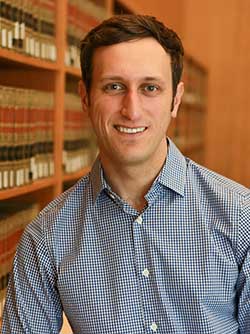| |
Safety Culture and Direct Potable Reuse
 |
|
|
|
Big Spring Raw Water Production Facility, an active DPR plant in Texas. Credit: Hazen and Sawyer
|
Direct potable water reuse (DPR), the injection of highly purified wastewater into drinking water systems, is among the newest, and most controversial, methods for augmenting water supplies. DPR is garnering increasing interest, but does not come without risks.
In a new article in
Water Resources Management
,
Mike Kiparsky and co-authors examine the implications of risks in DPR. They find that conventional drinking water risk regulation may not sufficiently account for the risk of acute failure of complex systems like DPR.
Drawing on lessons from other sectors that have a similar risk profile, such as the airline industry and the nuclear power sector, the authors argue that building a new comprehensive risk management system
, one that includes industry-wide oversight and active development of a safety culture,
is necessary in order to expand direct potable reuse.
It is in the interest of the emerging DPR industry to avoid its own Fukushima event. A drinking water system mishap could have high "signal potential," and could easily set back public acceptance of a technology that is already struggling against consumers' psychological barriers (the
"yuck factor"), a lack of broader societal legitimacy, and the industry's general challenges with innovation. The industry could proactively address low-probability high-consequence risks upfront, by working to develop effective plans for establishing utility safety cultures and effective oversight. Examples from the aviation, nuclear, and oil industry show that such interventions do not necessarily require new layers of regulation, but can be designed in efficient, participatory, and even voluntary ways.
You can also view our 2015 article examining case studies of DPR projects in California here.
For more information, contact Mike Kiparsky, Director of the Wheeler Water Institute at CLEE.
|
Announcing New Members of the CLEE Team
Patrick Heller

Joining CLEE as a Senior Visiting Fellow,
Patrick Heller has worked on legal reform and governance in the developing world for over 15 years. He is concurrently an advisor at the Natural Resources Governance Institute (NRGI) and has worked for organizations including USAID, the State Department, and the Asian Development Bank.
At CLEE, Patrick is focusing his research on pathways to sustainability for fossil fuel-producing countries, including tools for governments to better account for uncertainties from climate change as they make long-term economic plans. He is also examining methodologies for incorporating measurements of environmental risks into decisions about whether to proceed with new oil or mining projects.
Ted Lamm

The newest member of the Climate & Energy program,
Ted Lamm, is researching policy options to help jurisdictions like California achieve their climate goals. Ted is currently engaged in a project examining strategies to bolster sustainable freight in California, as well as a
cross-campus project to retrofit an existing city block for long-term energy and water sustainability, as a model that can be deployed worldwide.
Ted previously practiced environmental law and corporate law in New York and received his JD from NYU in 2013, where he was the symposium editor of the Environmental Law Journal and practiced in the NYU/NRDC Environmental Law Clinic.
|
|
Faculty + Staff
In the News
|

In an interview with Marketplace, Holly Doremus discusses international fishing laws in the context of sea level rise and suggests that they need to be reworked.
|

In an
Al Jazeera Arabic segment on the Saudi national oil company Saudi Aramco, Patrick Heller discusses the impact that an IPO would have on the company and on global oil markets.
|
|
Like What We Do? Support Our Work!
CLEE is a self-supported research and educational-support center within Berkeley Law. Our work is made possible by project funding and donations from our generous community of supporters. If you like what we do, please consider making a one-time or recurring donation through our giving portal.
We wouldn't be here today without the generosity of alumni, practitioners, and supporting organizations. Our deepest thanks to all of you who have already given, and those who are considering giving today!
|

|
The Center for Law, Energy & the Environment (CLEE) channels the creativity and expertise of the Berkeley community into pragmatic policy solutions to critical environmental and energy issues.
|
|
|
|
|
|
|
|
|
Copyright © 2017. All Rights Reserved.
|
|
|
|